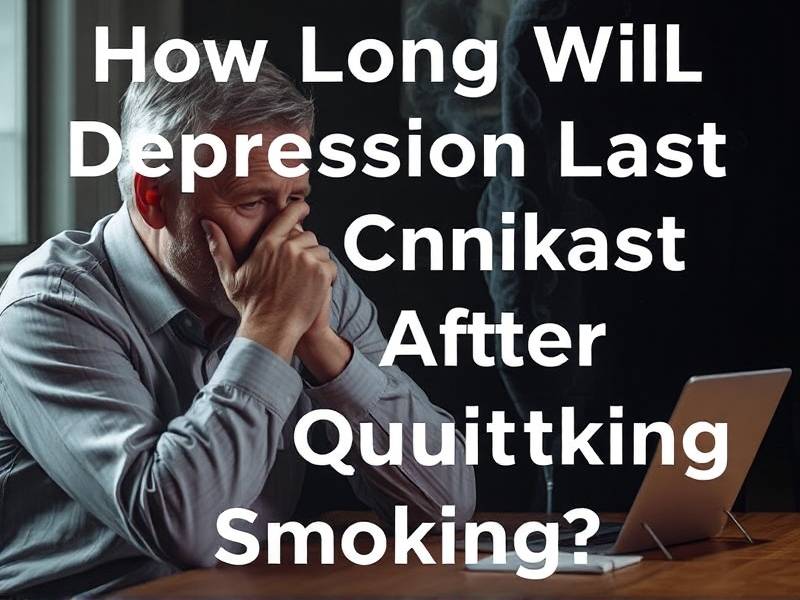How Long Will Depression Last After Quitting Smoking?
The Longevity of Depression Post-Quitting Smoking: What You Need to Know
Introduction: Quitting smoking is a significant step towards a healthier lifestyle. However, many individuals often face various challenges after quitting, including depression. Understanding how long depression may last post-quit can help you prepare for the journey ahead. In this article, we'll explore the factors that influence the duration of depression after quitting smoking and provide insights into managing these emotions effectively.
Understanding Post-Quit Depression: Post-quit depression, also known as "smoking cessation syndrome," refers to feelings of sadness, irritability, and anxiety that some individuals experience after quitting smoking. It is a common occurrence and can last from a few days to several months post-quit.

Factors Influencing the Duration of Depression:
-
Severity of Nicotine Dependence: The severity of nicotine dependence plays a crucial role in determining the duration of post-quit depression. Individuals with a higher level of dependence may experience more prolonged symptoms.
-
Mental Health History: People with a history of mental health issues, such as depression or anxiety disorders, may find it more challenging to cope with post-quit depression.
-
Social Support: Having a strong support system can significantly impact the duration and intensity of post-quit depression. Friends, family, and support groups can provide emotional support and guidance during this challenging time.
-
Coping Strategies: Developing effective coping strategies is essential in managing post-quit depression. Engaging in activities that promote relaxation and well-being can help alleviate symptoms.
How Long Will Depression Last After Quitting Smoking? The duration of post-quit depression varies from person to person but generally ranges from two weeks to several months. Here are some common scenarios:
-
Short-Term Symptoms (2-4 Weeks): Many individuals experience short-term symptoms like mood swings and irritability within the first few weeks after quitting smoking.
-
Moderate Symptoms (4-12 Weeks): Moderate symptoms may persist for several weeks or even months following quitting smoking.
-
Long-Term Symptoms (12+ Weeks): In some cases, individuals may experience long-term symptoms that can last for several months or even longer.
Managing Post-Quit Depression: Here are some tips to help manage post-quit depression:
-
Seek Professional Help: If you're struggling with severe symptoms or have a history of mental health issues, consider seeking professional help from a therapist or psychiatrist.
-
Maintain Regular Exercise: Regular physical activity can boost your mood and energy levels while reducing stress.
-
Practice Mindfulness: Engaging in mindfulness practices such as meditation or yoga can help improve your mental well-being.
-
Stay Connected: Maintain strong relationships with friends and family members who offer emotional support.
-
Try Nicotine Replacement Therapy (NRT): NRT products like gum, patches, lozenges, or inhalers can reduce withdrawal symptoms and cravings during the quit process.
Conclusion: Quitting smoking is an essential step towards better health; however, it's important to understand that it comes with challenges like post-quit depression. By recognizing the factors influencing its duration and implementing effective coping strategies, you can navigate through this period successfully and achieve lasting success in your quit journey.

